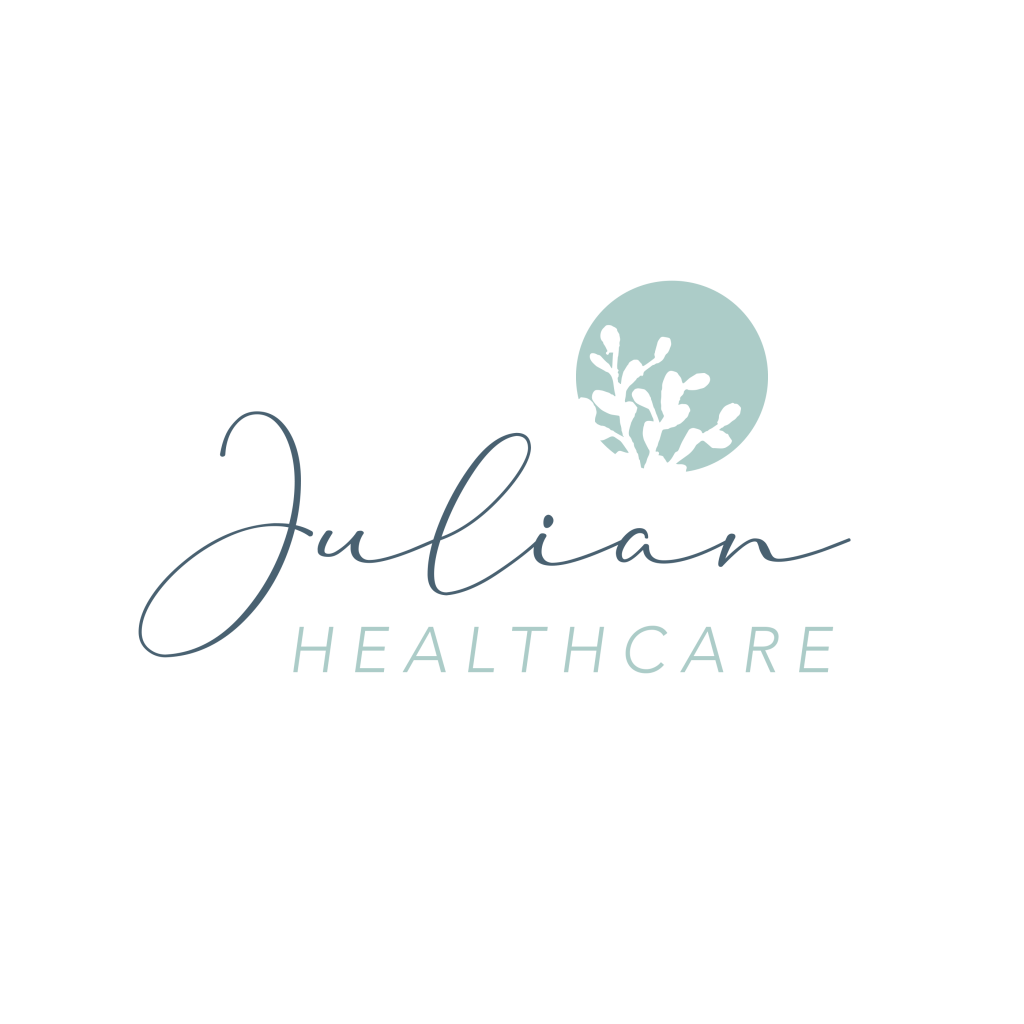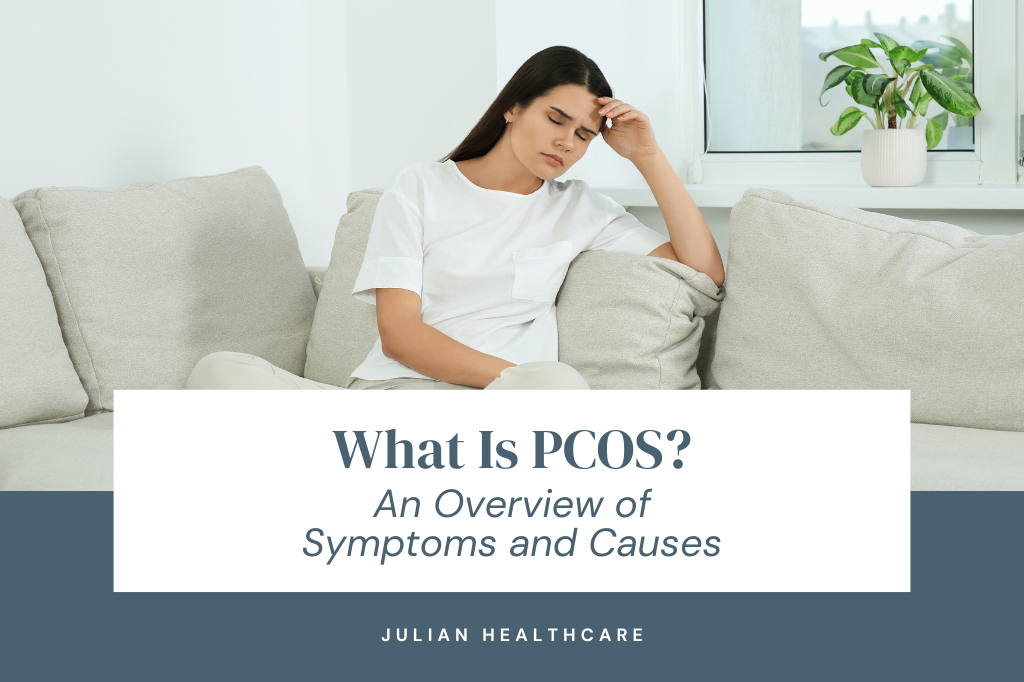Polycystic Ovarian Syndrome (PCOS) is one of the most common hormone imbalances affecting women today, and yet, it’s also one of the most misunderstood.
At Julian Healthcare, we believe women deserve real answers and compassionate care. In this two-part blog series, we’re exploring PCOS from a functional medicine perspective, starting with what it is, what causes it, and why the name itself can be misleading.
What Is PCOS?
Despite its name, you don’t have to have cysts on your ovaries to be diagnosed with PCOS. In fact, the “cysts” in PCOS are actually immature follicles—undeveloped eggs that didn’t make it through ovulation. You can meet the criteria even if no cysts are visible on ultrasound.
At its core, PCOS is a hormone imbalance, specifically involving higher-than-normal levels of androgens (male hormones like testosterone and DHT). These hormones affect much more than just your ovaries.
Common Symptoms
Because PCOS impacts multiple systems in the body, symptoms can vary widely from person to person. Some of the most common signs include:
- Irregular or absent periods
- Infertility or trouble ovulating
- Acne, especially along the jawline
- Excess facial or body hair (hirsutism)
- Hair thinning or male-pattern baldness
- Dark patches of skin (acanthosis nigricans)
- Weight gain or difficulty losing weight
If you’ve been experiencing some of these symptoms but haven’t found clear answers, you’re not alone. Many women are told their symptoms are “normal” or “just stress”, when in fact, their body is asking for help.
What Causes PCOS?
In functional medicine, we look beyond the surface symptoms to identify why the body is out of balance. While PCOS may look different for each person, we often see one or more of the following four types driving the condition:
1. Insulin-Resistant PCOS
This is the most common type. High insulin levels—often caused by frequent blood sugar spikes or poor insulin sensitivity—can overstimulate the ovaries, leading to excess testosterone and disrupted ovulation. This type often presents with weight gain, intense carb cravings, and fatigue after eating.
2. Inflammatory PCOS
Chronic, low-grade inflammation can interfere with hormone signaling and ovulation. It may stem from food sensitivities, gut imbalances, environmental toxins, or ongoing stress. Women with this type may experience joint pain, skin issues, fatigue, or digestive symptoms.
3. Adrenal PCOS
In this type, the ovaries aren’t the main issue—stress is. The adrenal glands produce excess androgens like DHEA in response to chronic physical or emotional stress. These women often have normal insulin levels and may be lean, but still experience acne, hair loss, or irregular cycles.
4. Post-Pill PCOS
This type can develop after stopping hormonal birth control, especially pills that suppress androgens. In some women, periods don’t return for several months, and androgen symptoms like acne or hair growth flare. This is typically temporary but still needs support to rebalance hormones.
You Deserve Clarity and Support
PCOS isn’t just about missed periods or fertility struggles; it’s a whole-body condition that deserves a whole-person approach.
At Julian Healthcare, we take time to listen to your story, order the right tests, and uncover the root causes of your symptoms. You’re not just another number or a textbook case; you’re the most important person on your health team.

